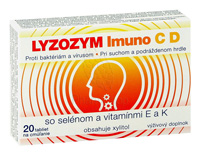SUMMARY
Onclogic disease is the most common reason for invalidity in Slovakia in recent years. In men, it was 40.85% as invalidity reason, in women 66.13%. Most frequent cancer is colorectal carcinoma (together with prostate and lung cancer in men and breast cancer in women). High incidency of these diseases required series of preventive and terapeutical measures. Goal of this work is to inform about screening options and surgical therapy of colorectal carcinoma. Screening for colorectal carcinoma and adenomatous polyp lesion starts in 5th decenium. Patients with high risk should be screened even earlier. High risk patients group consists of patients with positive familiar history, polyposis, non-polypous hereditary cancer, familiar adenomatous polyposis, positivity in own history regarding colorectal carcinoma or inflamatory bowel disease (Crohn´s disease, ulcerative colitis).
Bowel resection in resectable localized colorectal carcinoma is recommended option in primary setting. Following criteria have to be maintained: extent of colic resection should correlate with lymphovascular drainage regarding to localiation of tumor, lymphadenectomy must be completed and present in resected specinem.
Patients with low risk or early carcinoma have to be treated primarily by surgical approach. Therapy of locally advanced or high risk disease involves neoadjuvant chemoradiotherapy.
Besidse laparoscopic and miniinvasive options, new protocols aimed to optimalisation of therapeutical procedures are implemented to increase efectivity of management, so that surgical procedure will be only a part of whole process. ERAS and fast-track surgery, enhanced recovery after surgery) protocols are applied into therapeutical process. Anestesiological approach with pain relief is irreplaceable in mentioned protocols.
In conclussion, authors discuss possibilities of ERAS implementation with usage of multidisciplinary approach. Education of patient starts before surgery is scheduled. Role of surgeon is based of adequate selection of patients, size and type of incision, minimalisation in drain usage, their early removal, early enteral food admision and early mobilisation. Role of anestesiologist requires usage of anestesiological techiques aimed to fast pooperative recovery, fluid intake optimalisation, prevention of postoperative nausea and vomiting and multimodal analgesis. Implementation of ERAS significantly reduced time to dismission from average 5-9 days to 2-4 days after surgical procedure
Key words: colorectal carcinoma, surgery, familiar history, polyposis, familiar adenomatose polyposis, inflamatory bowel disease, Crohn´s disease, colitis ulcerosa.
Lek Obz, 2022, 71 (2): 60-69.
Michal BERNADIČ 1, Marian BÁTOVSKÝ 2, Miroslav JURÍK 1, Juraj PECHAN 1, Daniel PINĎÁK 1
1 Klinika chirurgickej onkológie NOÚ a SZU, Bratislava, prednosta prof. MUDr. D. Pinďák, PhD.
2 Klinika gastroenterológie LF a UN SZU, Bratislava, prednosta prof. MUDr. M. Bátovský, CSc., MPH
CITE:
BERNADIČ M., BÁTOVSKÝ M., JURÍK M., PECHAN J., PINĎÁK D.: Fast track surgery - Enhanced Recovery After Surgery (ERAS) in colorectal cancer therapy. Lek Obz, 2022, 71 (2): 60-69.



